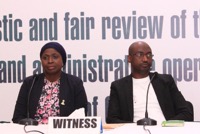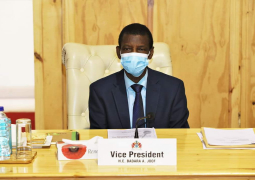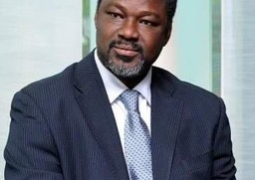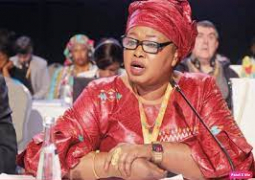
The finance deal was a partnership between AGIB and Espace Motors for the purchase of trucks under the Mbalit project
During the hearing, the executives presented financial documents, including the joint venture agreement, financing application, and payment records for transactions made to suppliers in China.
They indicated that four separate transfers were made in February and March 2019 for the purchase of the trucks in total of D122 million and the bank's profit from the deal should be D13 million, while Espace Motors was set to receive D8 million.
However, the inquiry raised concerns about the bank's due diligence process. Lead Counsel Patrick Gomez questioned the executives about the lack of an independent financial evaluation of Espace Motors prior to the agreement.
Jawara admitted that no such assessment had been conducted, explaining that the bank's decision was based on trust in the longstanding business relationship with Espace Motors, also known as Quantum.
“The project had no specific collateral,” Jawara said, though she maintained that Espace Motors had sufficient collateral with the bank to cover any potential losses.
Operations Manager Jallow supported her claim, saying that AGIB held a memorandum of deposit with Quantum covering all transactions. Despite this, he acknowledged that the bank’s credit committee did not review or approve the truck financing deal. Instead, the bank proceeded solely under the framework of its general partnership with Espace Motors, he said.
The inquiry also delved into conflicting testimony concerning a previous credit facility request from the Kanifing Municipal Council (KMC). Former AGIB relationship manager Samba Faye had testified that the request was denied. However, when Jallow was questioned, he claimed no recollection of such a request ever reached the management level.
Counsel Gomez challenged the AGIB officials on why there was no formal agreement specific to the Mbalit project, and why a risk assessment was not carried out. "Was it sufficient to rely on an MoU to finance the truck purchases without collateral, approval from the credit facility committee, or any necessary assessments?" he asked.
Jallow defended the bank’s actions, stating that due diligence was carried out, as AGIB viewed Quantum more as a partner than a customer. However, Gomez remained unconvinced. The counsel pointed out that the primary source of repayment - funds from the wards - failed to generate the expected revenue, adding that AGIB was eventually forced to seek authorisation from Quantum to pursue KMC for payment, a move that reflected the financial instability of the project from the outset.
Jallow admitted that the expected funds had not materialised. “If the funds were coming as expected, it would not have been necessary to follow the KMC,” he said.
Counsel Gomez put it to them that AGIB had miscalculated the financial viability of the Mbalit project, failing to establish a clear path for repayment. “This is possible because there was no due diligence done,” he said.





